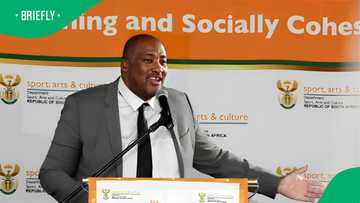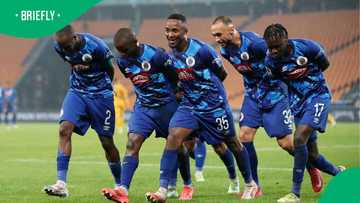"Football Is a Business" : SuperSport United's R50 Million PSL Exit Explained
- SuperSport United has officially sold its PSL status to Calvin Le John for R50 million, marking the end of the club’s existence
- Once a dominant force in South African football, the club’s decline is linked to financial struggles and poor on-field performance
- Briefly News had an exclusive conversation with football pundit Jake Koos believes the sale was a business decision driven by MultiChoice's shrinking revenue and lack of return on investment
PAY ATTENTION: You can now search for all your favourite news and topics on Briefly News.
The story of SuperSport United has reached a sad ending. A club purchased through the Premier Soccer League (PSL) status of Pretoria United has, unfortunately, ended its existence the same way it came into existence, with the confirmed news that United has sold its status to Calvin Le John for R50 million.
For a historic club like United, which won Premier League titles for three successive seasons and produced talent like the current Bafana Bafana goalkeeper Ronwen Williams to be erased from the annals of history is a sad indictment. Not only for the people of Pretoria, who will now only be left with Mamelodi Sundowns for that Tshwane pride, but also for South African football as a whole.
Inasmuch as there is an air of excitement and euphoria that a club from Bloemfontein will enter the fray and bring back football for the Free State province, it feels like ten steps forward and twenty steps backwards.
What went wrong at SSU?
So, what went wrong at SSU and what could other clubs learn from this cautionary tale?
Briefly News had an exclusive comment from football pundit Jake Koos, who believes SuperSport United became more of a “sacrificial lamb” in the corridors of MultiChoice.
PAY ATTENTION: Briefly News is now on YouTube! Check out our interviews on Briefly TV Life now!
He feels the poor performance by the mother company meant that running the football club became an additional liability and expense. Not to mention the poor performance by the club itself , last winning the league in the 2009/10 season and a cup in the 2017/18 season.
“One feels like the club, for the longest time, has been underperforming and not bringing back the return on investment to MultiChoice,” said Koos.
“And we all know how well-documented the decrease in the subscriber base is there, and how that has affected the holistic revenue stream. So at some point, SuperSport would have seen its demise.”
Business decision over football
Will it be safe to suffice then that the decision to sell was not purely a football one, but one influenced by business? Koos seconded that narrative.
“Most clubs in the country that had strong football roots like Kaizer Chiefs and Orlando Pirates have the propensity to survive, even when they go years without much success on the field. Unlike clubs that depend on corporates like SuperSport United,” he explained.
“Because for those companies, football is a business. The moment there is a drop in the company’s revenue streams, so too happens its interest in football.”
Well, football is a business. MultiChoice was no longer getting value for its money, and their other businesses, like SuperSport United, are not doing well at the moment. So eventually, “it was going to be shape up or they ship out the club.”
PAY ATTENTION: Follow Briefly News on Twitter and never miss the hottest topics! Find us at @brieflyza!
Source: Briefly News



